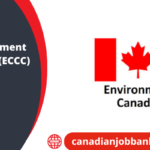
Environment and Climate Change Canada (ECCC)
Environment and Climate Change Canada (ECCC) leads in conserving Canada’s environment, focusing on conservation, meteorology, environmental protection, and climate action. This guide highlights diverse job opportunities at ECCC, allowing you to contribute to Canada’s environmental future.
Passionate about environmental protection? Apply to Environment Canada Jobs to contribute to conservation and policy efforts. Join a dedicated team tackling climate change and preserving nature. Opportunities are available across Canada, including Ontario and Toronto.
Environment Canada offers careers for diverse educational backgrounds, including roles like technical directors, environmental engineers, and senior analysts. Foreign candidates and remote work options are available, offering flexibility and the chance to contribute to environmental conservation and policy development.
Overview of ECCC
Established in 1971 and based in Gatineau, Quebec, Environment Canada focuses on preserving renewable resources and promoting eco-friendly practices. Its team of scientists and professionals addresses global warming, air and water quality, and wildlife habitat conservation.
Environment Canada provides key services like weather forecasting, climate monitoring, and regulation enforcement. It conducts scientific research to guide policy and raise public awareness. Led by Minister Steven Guilbeault, the department ensures customer satisfaction and timely updates to stakeholders.
ECCC monitors weather, enforces environmental laws, conducts research for policy development, and leads Canada’s climate change efforts. Careers at ECCC provide opportunities to be at the forefront of environmental science and policy-making.
Types of Careers at ECCC
Scientific and Research Roles
- Climatologists: Analyze weather patterns and climate data to forecast changes and inform policy decisions.
- Environmental Scientists: Conduct research on environmental impacts, biodiversity, and conservation.
- Water Quality Technicians: Monitor and assess the quality of Canada’s water bodies.
Policy Development and Program Management
- Policy Analysts: Craft and evaluate policies related to environmental protection and climate change.
- Program Managers: Oversee initiatives aimed at environmental conservation and climate adaptation.
Enforcement and Compliance
- Environmental Enforcement Officers: Ensure compliance with Canada’s environmental laws.
- Wildlife Officers: Protect wildlife by enforcing regulations and conducting patrols.
Communications and Education
- Public Outreach Officers: Educate the public on environmental issues and promote community engagement.
- Communications Specialists: Handle media relations, public advisories, and informational campaigns.
Technical and Operational Support
- Meteorological Technicians: Support the operation of weather-monitoring equipment and data collection.
- GIS Specialists: Manage geographic information systems for environmental mapping and analysis.
Often Available Positions:
EC offers many opportunities in a number of fields. Individuals can find employment in research, policy development, conservation, resource management, and other areas. A few of the most frequently offered roles are listed as under:
- Scientist
- Climate Change Analyst
- Meteorologist
- Wildlife Biologist
- Policy Advisor
- Air Quality Specialist
- Water Resource Manager
- Conservation Officer
- Engineer
- Technical Director
- Planner
- Senior Analyst
Salaries and Benefits
- Salaries at ECCC vary widely based on position, experience, and location. Entry-level positions may start around CAD 55,000, while experienced professionals can earn upwards of CAD 100,000.
- Benefits include comprehensive health insurance, pension plans, and professional development opportunities.
Requirements for Working at ECCC
Educational Requirements
- Most scientific and technical roles require at least a bachelor’s degree in environmental science, meteorology, geography, or related fields.
- Higher-level positions may require a master’s degree or PhD.
Experience and Skills
- Relevant experience in environmental research, policy analysis, or fieldwork is highly regarded.
- Strong analytical skills, proficiency in data analysis, and excellent communication abilities are essential.
Security and Background Checks
- Some positions, especially those involved in enforcement, may require security clearance and thorough background checks.
Application Process
To apply for a job at ECCC, candidates typically submit an application through the Government of Canada’s job portal. This includes a resume, cover letter, and possibly completion of assessments or interviews.
Career Advancement and Development
ECCC encourages continuous learning and career development through:
- Internal training programs.
- Opportunities for promotion and lateral moves within different sectors of the department.
Final Thoughts & Mode of Application
A career at ECCC allows you to engage in impactful work that protects Canada’s environment and strengthens climate resilience. With diverse roles, it’s ideal for those passionate about environmental stewardship and climate action.
FAQs
- What is the salary range for an Environmental Scientist at Environment and Climate Change Canada?
- Environmental Scientists typically earn between CAD 65,000 and CAD 95,000 per year, depending on experience and qualifications.
- Do I need to be bilingual (English and French) to work at Environment and Climate Change Canada?
- While bilingualism is preferred for many roles, especially in Ottawa and other bilingual regions, it is not always mandatory for all positions.
- How can I apply for a job at Environment and Climate Change Canada?
- You can apply through the Government of Canada Jobs website by submitting your resume and cover letter.
- What qualifications are required for a Policy Analyst role at Environment and Climate Change Canada?
- A bachelor’s degree in public administration, environmental studies, or a related field is typically required, along with 1-5 years of experience in policy development or analysis.
- What benefits do employees at Environment and Climate Change Canada receive?
- Employees receive health and dental insurance, pension plans, paid vacation, and access to training and development opportunities.